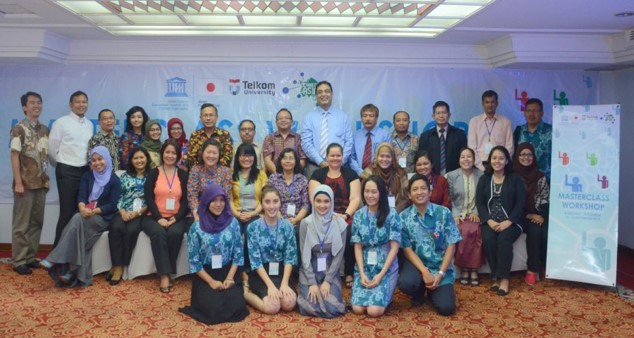
COMPETENCE focuses on rethinking science education by putting it in the context of sustainable development, and introduces innovations into the teaching of science, technology, engineering and energy in higher institutions of learning and research and development bodies in Asia and the Pacific to make it a more effective tool to build their knowledge, skills and attitudes for sustainable living.
General Objective
To use science education as a fundamental basis for sustainable development, and to engage youth, educational institutions and governments to develop and use science education as a fundamental basis for sustainable development in the Asia-Pacific region.
Phase 1 – Development of the Framework
Phase 2 – Model Course and Pilot Project
Phase 3 – Refinement, Localization and Validation
Phase 4 – Broadening Thematic Areas and Scope
Project Partners and Collaborators
SOI and the CONNECT-Asia Network, APAN, Kyoto University, SEEForum, Hokkaido
University CENSUS, Nagoya University, the National University of Timor Leste,
Brac University, the Asian Institute of Technology, the National University of
Vietnam, the National University of Laos, Keio University and other universities
and research institutions in Asia and the Pacific; educational and professional
networks; national governments; inter-governmental agencies; and UNESCO Offices
Bangkok, Beijing, Phnom Penh, Dhaka and Dili.
What is COMPETENCE, and how can it strengthen regional technology, engineering and science education?
Given the multifaceted and complex issues of science and sustainability, this project seeks to address the context, content and process of science education. To make it more manageable, the project will limit its scope to the contributions that higher education institutions can make, and seek to clarify their role in developing and validating new content and methodologies for an interdisciplinary approach to science, engineering and energy education for sustainable development.
Context: Make sustainable development the framework for science education, so that the teaching and learning of sustainable development principles, values and ethics are woven seamlessly into science courses, rather than presented as an isolated stand-alone course or special module in science programmes.
Content: Develop high quality science education content that reflects interdisciplinary systems thinking, and builds the knowledge, attitudes and skills for sustainable living.
Process: Encourage educational institutions to deliver their educational content through a mutual learning-oriented engagement with civil society and the community at local, national, regional and global levels, which is designed to demonstrate integrated systems thinking and collaborative action.

Recent Comments